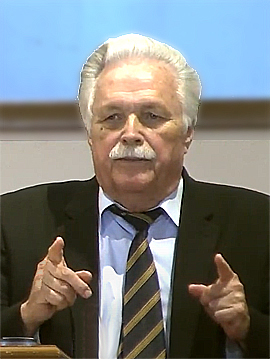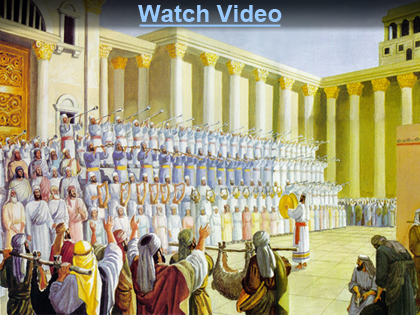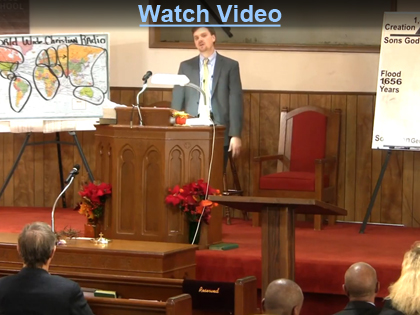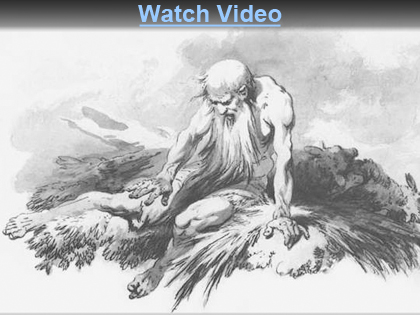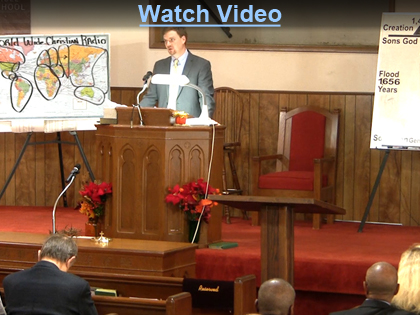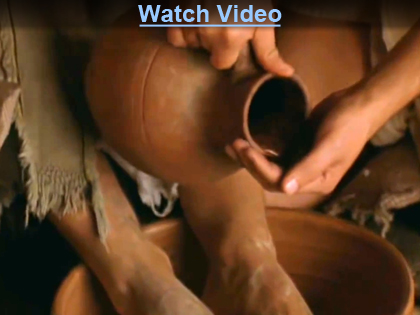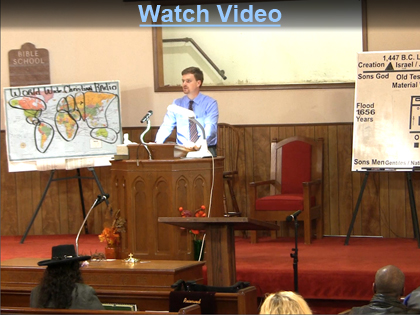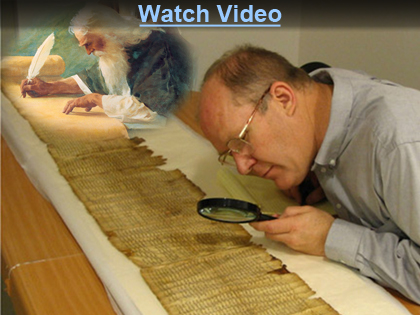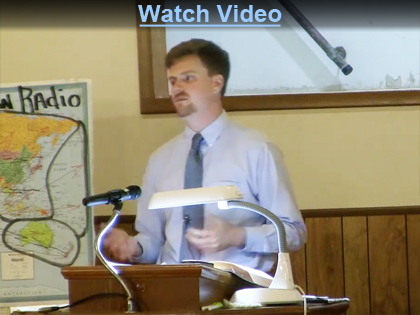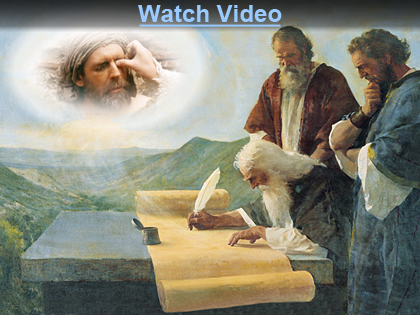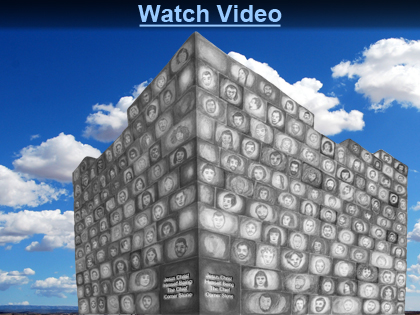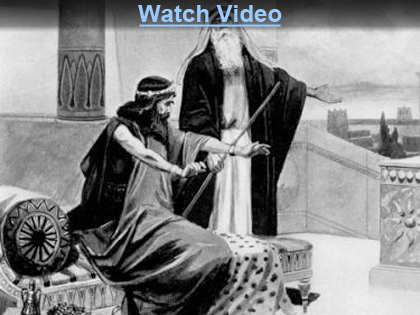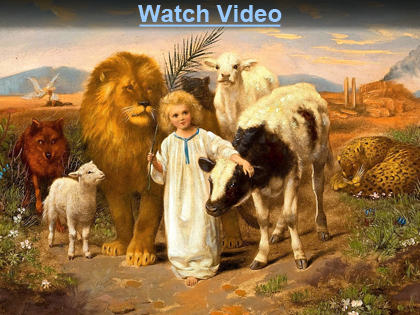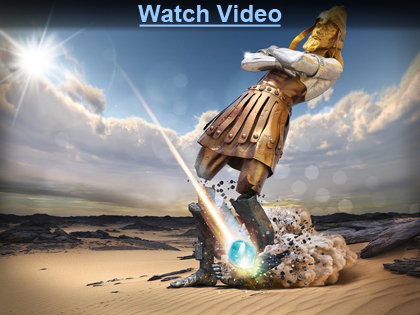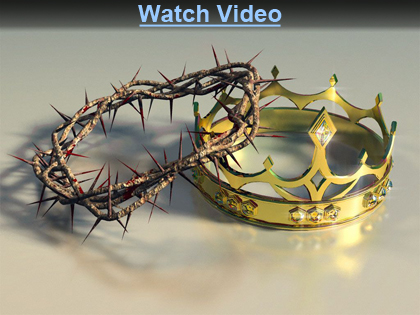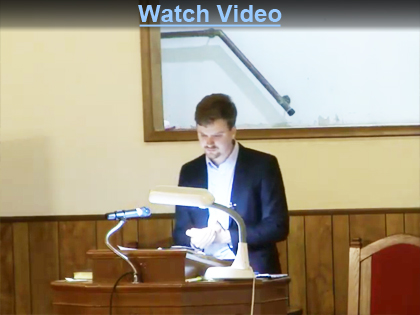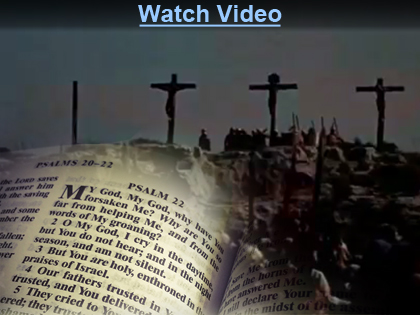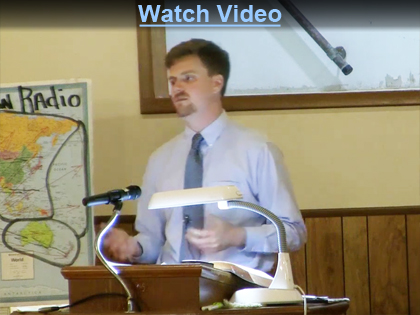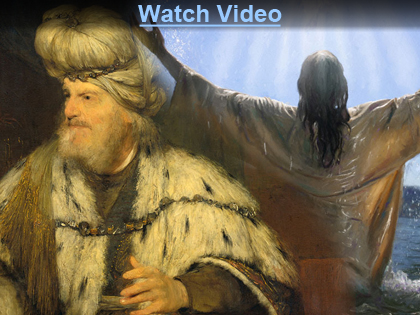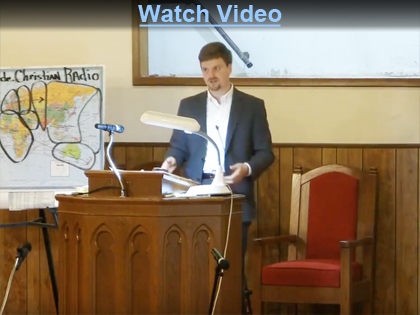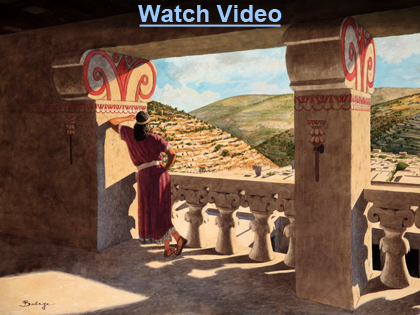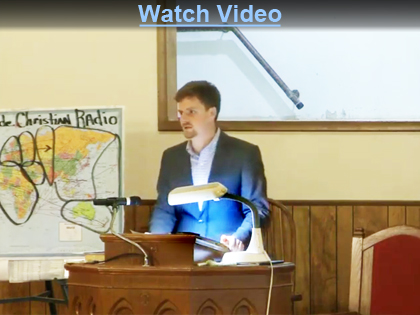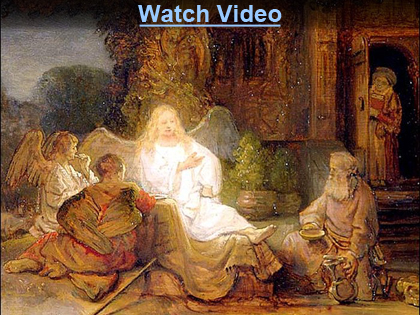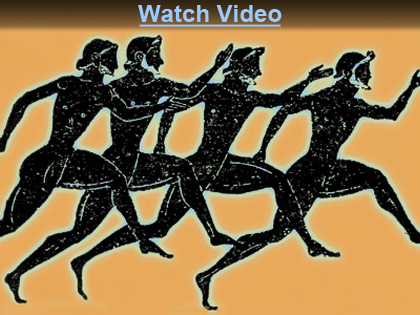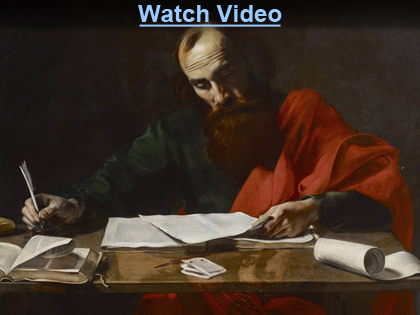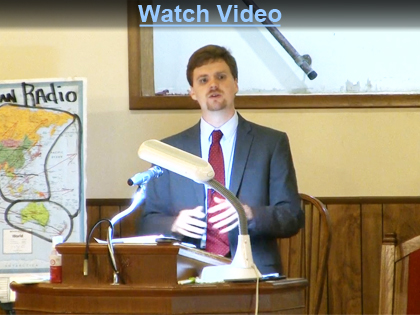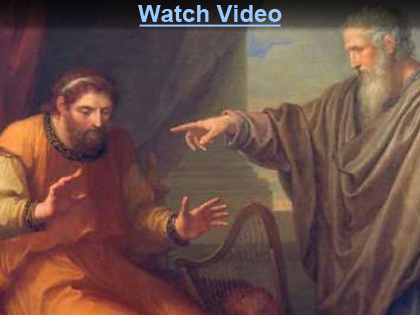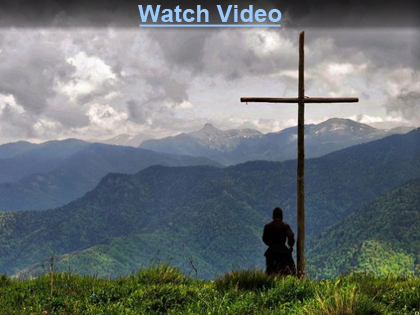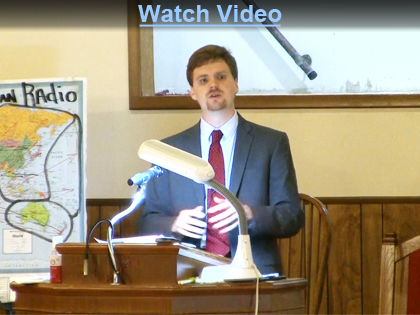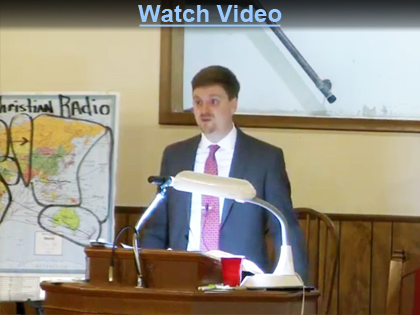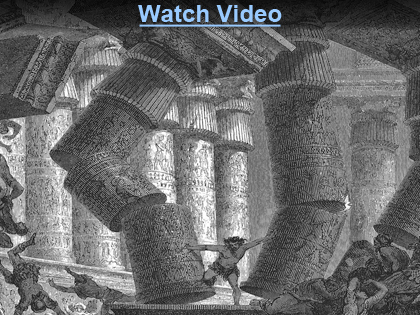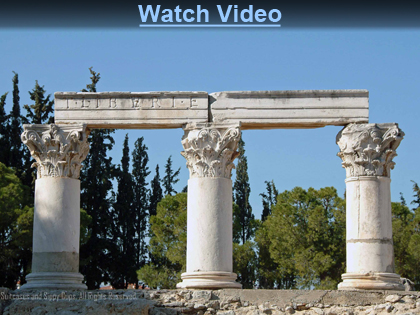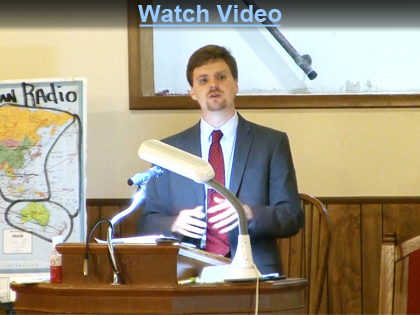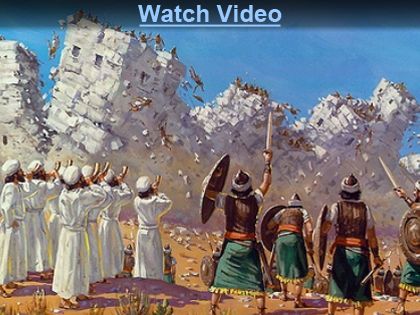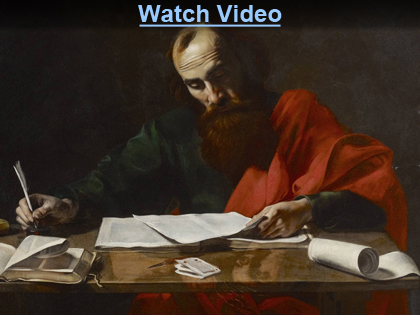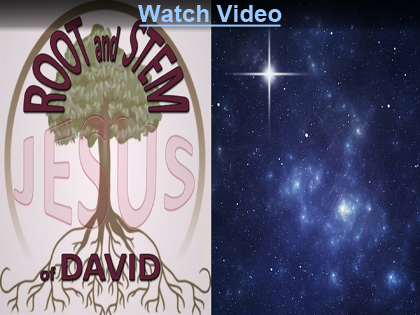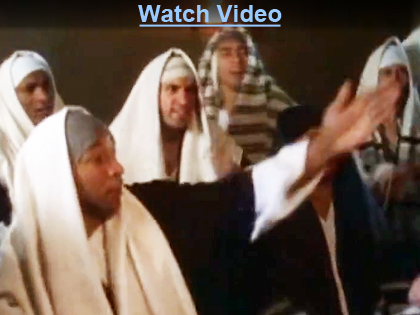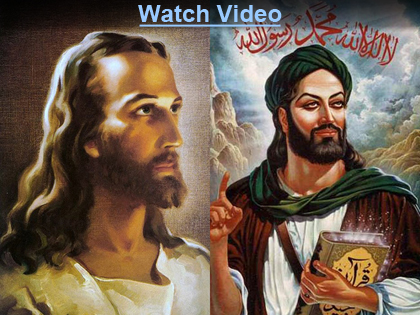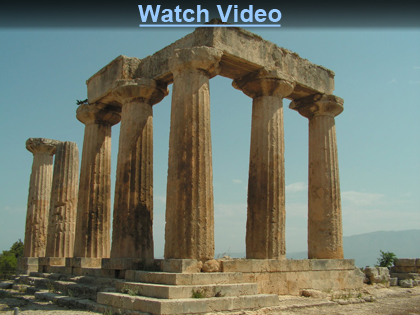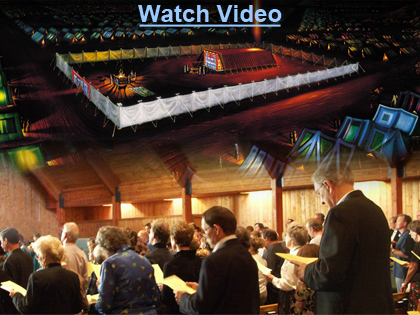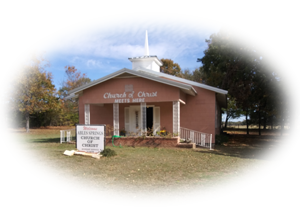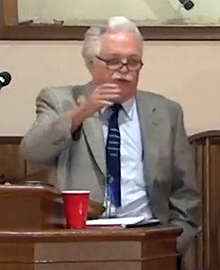
Church of Christ
Gospel Preaching
Old Time Exegesis Preaching that Teaches & Baptizes
Over Ten Years of Downloadable Sermons!
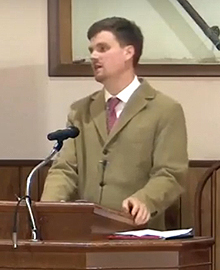
Exegesis (/ˌɛksəˈdʒiːsɪs/; from the Greek ἐξήγησις from ἐξηγεῖσθαι, "to lead out") is an explanation of a text, particularly a religious text. Traditionally the term was used primarily for work with the Bible; however, in modern usage "biblical exegesis" is used for greater specificity to distinguish it from any other broader critical text explanation. Exegesis is the expository investigation into the history and origins of the text, but may include the study of the historical and cultural backgrounds for the author, the text, and the original audience.
All of the audio files on this page are in MP3 format.
Some devices can't play MP3 files. To listen to WMA files, Please Click Here.
Sermons from Previous Years
|
2019 Kelly Lawson William Ralston |
2018 Kelly Lawson |
2017 Kelly Lawson |
2016 Kelly Lawson |
2015 Kelly Lawson |
|
2014 Kelly Lawson |
2013 Kelly Lawson |
2012 Kelly Lawson |
2011 Kelly Lawson |
2010 Kelly Lawson |
|
2006-2009 Kelly Lawson |
||||
2019 Sunday Gospel Sermons
by Kelly Lawson & William Ralston
Return to 2020-2021 Sermons
Isaiah 58
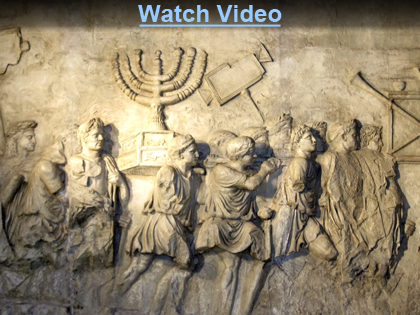
Sermon begins at 14:04
THE SEED LESSON PART 50
A severe reproof of the Jews on account of their vices, particularly their hypocrisy in practicing and relying on outward ceremonies, such as fasting without true repentance [Isaiah 58:1-5]. It then lays down a clear summary of the duties they owed to their fellow man [Isaiah 58:6-7]. Promises of happiness & prosperity are likewise annexed to the performance of these duties in a variety of the most beautiful and striking images [Isaiah 58:8-12]. Great temporal and spiritual blessedness of those who keep holy the Sabbath day [Isaiah 58:13-14...] which in the Christian Age is "the First day of the week" (Sunday) [Acts 20:7, I Corinthians 16:2, Revelations 1:9-10] The early Church practiced a "daily ministration" (feeding) [Acts 6, Romans 12:20] Therefore if thine enemy hunger, feed him; if he thirst, give him drink: for in so doing thou shalt heap coals of fire on his head. So artists melt the sullen ore of lead, By heaping coals of fire upon its head. In the kind warmth the metal learns to glow, And pure from dross the silver runs below."
Isaiah 53: The Suffering Servant Song
THE SEED LESSON PART 49
The Gospel in Prophecy more than 700 Years BC. The prophecy in song is composed of 15 Verses that may be divided into 5 Topical Stanzas of 3 verses each; beginning with Isaiah 52:13 through Isaiah 53:12. The poetry of the Hebrew Bible is read in melody or sung. This prophecy is sym-me'-tri-cal. There are five stanzas of three verses each. It begins and ends with the Servant's exaltation first [Isaiah 52:13-15] and fifth stanzas [Isaiah 53:10-12] and set within this, is the story of Christ's rejection in stanzas two [Isaiah 53:1-3] and four [Isaiah 53:7-9], which in turn frames the centerpiece stanza 3 [Isaiah 53:4-6], where the atoning significance is revealed. God and man, reconciled, share in the telling. Note the "my" and "our" of the outer stanzas one and five.
Ephesians 1:15-23: The Spirit of Promise
The "love, joy and peace, longsuffering, kindness, goodness, etc.," which mark the true Spirit of promise in Christian hearts are here considered to be one in kind with the joys of the redeemed in heaven. The Christian life, faithfully lived, is itself the beginning of the heavenly adventure. Verse 15 begins a prayer Paul penned on behalf of his addressees, running through the end of Ephesians. Paul did not cease to give thanks for his converts. The constant, never-failing supplications of Paul for the beloved in Christ cannot fail to impress any thoughtful person. Paul never forgot to pray for others, and thanksgiving was a prominent, invariable element in all of Paul's prayers that have come down to us. Whatever the circumstances, he always found something to be thankful for. The apostle did not pray that God would give to all the Ephesians the knowledge of the doctrines of the gospel, by an immediate revelation made to themselves; but that he would enable them to understand the revelation of these doctrines which was made to the apostles, and which they preached to the world. In Matthew 28:18, Jesus Christ spoke of "all authority" in heaven and upon earth having been given unto him; and exactly the same teaching is here. It is not merely the fact of Christ's universal, eternal power which Paul affirmed here; the significant thing is that he is the head of that community of men and women on earth called "the church" who are his body, his spiritual body, having an intimate and eternal connection with the all-powerful One who is actually the "head" of that spiritual body.
 Sunday Morning Class - Job: Unrighteous Judgement
Sunday Morning Class - Job: Unrighteous JudgementInvitation: Prayers Requested December 15, 2019 Bulletin
Living a Study of Job
by Brother Eric Jenkins
Job was a good man [Job 1:1]. Job was a rich man [Job 1:2-5]. God & Satan discuss Job [Job 1:6-12]. Job's Calamities in one day [Job 1:13-19]. How a righteous man deals with disaster [Job 1:20-22]. Satan tries again [Job 2:1-10]. Job's friends come [Job 2:11-13]. Job's Lament [Job 3]. Eliphaz's vain comfort [Job 4 & 5]. Job's reply [Job 6 & 7]. Bildad "knows" answer [Job 8]. Job responds [Job 9]. Job denies he is wicked [Job 10]. Zophar's the worst yet [Job 11]. Job answers all 3 accusations [Job 12 & 13]. Life's brevity [Job 14]. Eliphaz "knows" Job is wicked [Job 15]. Job defends himself [Job 16]. Job calls friends "mockers" & vows integrity [Job 17]. Bildad complains at Job's rebuke [Job 18]. Job rebukes 'friends' & praises God [Job 19]. I know that my Redeemer liveth [Job 19:25]. Zophar insults Job and predicts death and destruction [Job 20]. Job's message to 'friends' [Job 21]. Eliphaz accuses Job of sins [Job 22]. Job's yearning for access to God [Job 23]. Job lists evil deeds [Job 24]. Bildad points one finger at Job and three back at himself [Job 25]. Job evaluates friends' inability for any consolation [Job 26]. Job speaks of righteousness and the fate of the wicked [Job 27]. Wisdom - greatest treasure, hardest to find [Job 28]. Job's memory of past honor [Job 29]. Job's suffering [Job 30]. Job's innocence [Job 31]. Elihu's 6 speech - waiting for elder [Job 32]; patronizing [Job 33]; brutal attack [Job 34-35]; arrogance & condemnation [Job 36]; and God ignores Elihu [Job 37]. God terminates Elihu's remarks with questions to Job about Elihu [Job 38]. The Lord continues to speak [Job 39 & 40]. God speaks of a crocodile [Job 41]. Job's repentance [Job 41:1-6]. God rebukes 3 friends and requires sacrifices [Job 41:7-9]. The Lord stops Job's suffering, and blesses him more than before [Job 42:10-17].
I Corinthians 15: Resurrection
Practically all of this chapter is devoted to teaching concerning the resurrection. Starting with how The dead will be raised [I Corinthians 15:1-34]: The resurrection of Christ proves it [I Corinthians 15:1-11], because the Scriptures foretold it [I Corinthians 15:1-4], and eyewitnesses attested it [I Corinthians 15:5-11]. Denial of the resurrection is absurd [I Corinthians 15:12-34], because If the dead rise not, it would mean Christ did not [I Corinthians 15:13], it would follow that preaching was useless [I Corinthians 15:14], it would mean faith was worthless [I Corinthians 15:14],it would mean that the apostles were liars [I Corinthians 15:15], it would deny all possibility of salvation from sin [I Corinthians 15:16-17], it would mean that the righteous dead were lost [I Corinthians 15:18], it would mean all believers in Christ were to be pitied [I Corinthians 15:19], it would mean that even the rite of baptism for the dead, as practiced by the heathen, was absurd [I Corinthians 15:29], and it would mean that sufferings and privations of the apostles were vain and useless [I Corinthians 15:31-34]. An illustration of the reasonableness of the doctrine of the resurrection (introduced parenthetically, as often in Paul's writings) [I Corinthians 15:20-28] includes: "But now hath Christ been raised up [I Corinthians 15:20]", Paul could not wait until the conclusion of his argument, but dogmatically declared the truth of the resurrection; "As death came to all through one person (Adam), it is fitting that the resurrection should come through one" [I Corinthians 15:21-22]; The order of the resurrection is given [I Corinthians 15:23-28]. Finally, we come to the practical application of the doctrine of the resurrection [I Corinthians 15:55-58]: It places the Christian in a position of strength, the great victory already having been won [I Corinthians 15:55-57];and all of the Christian's energies should be devoted fully to the service of God, being assured that his labor is not in vain "in the Lord" [I Corinthians 15:58].
Isaiah 42-48: The Coming Servant Messiah
THE SEED LESSON PART 48
The prophet sets forth the meekness of Messiah's character, and the extent and blessings of his kingdom, particularly among the Gentiles [Isaiah 42:1-9]. In consequence of this he calls on the whole creation to join him in one song of praise to God [Isaiah 42:10-12]. After which he seems again to glance at the deliverance from the captivity; although the words may full as well apply to the deliverance of the Church; to the overthrow of her must powerful enemies; and to the victory of true religion over idolatry and error [Isaiah 42:13-17]. The prophet then reproves the Jews for their blindness and infidelity in rejecting the Messiah, and gives intimations of these judgments which their guilt would draw on them [Isaiah 42:18-25 cf: Romans 10:1-4].
Psalm 80: A Desperate Plea for Revival
We are studying Psalm 80 within the context of a desperate plea for true spiritual revival within the church, our nation, and world. This psalm appears to reflect the period of the Babylonian captivity, a period of hardship and disaster for the entire Hebrew nation. God is petitioned for salvation in the prayers in Psalm 80:1-7, with the names of the particular tribes bracketing the northern and southern tribes of Israel, and God being the leader of all Israel. The latter half of the Psalm refers to God taking Israel out of the Egyptian slavery, though God had ignored them for their later degeneracy. The psalm ends in a desperate plea to return to His children, to help change His children back to himself, and restore them to their former glory. The way back to a truly revived spirit in Christ is to turn away from the utter degeneracy of the world, and seek the face of God in earnest.
There Was Only One Isaiah
Introduction to Isaiah 40
THE SEED LESSON PART 47
It is our unwavering conviction that all of the prophecies Chapters 40-66 which is ascribed to Isaiah was indeed written by him, the fact being that no one except Isaiah could possibly have written a line of it. Why do we believe this? The inspired writers of the New Testament quoted from this last section of Isaiah no less than thirty-seven times, almost always making specific mention of the prophet Isaiah as the author of the passage quoted. Here is the real evidence on the authorship of this prophecy, as contrasted with the fembu advocated by the critics. Who were those New Testament writers: Matthew, Mark, Luke, John, Peter and Paul? They were the Holy Apostles of the Son of God, to whom Jesus Christ promised that the Holy Spirit would guide them "into all truth." They tell us these prophecies begin with the ministry of John the Baptist and develop into prophecies of Jesus and the "Last Days" or the beginning of the Christian age.
Acts 2:42-47: The Revivalist Church
In the last few verses of Acts 2, we see an image of what it looks like to keep a great church. As this church did, so should every church do, the apostles' teaching being the only doctrinal authority in the Christian religion, and Christians offered prayers at any and all times, and in any and all places. The signs mentioned were of such a powerful and supernatural nature, that fear came upon the whole community of Christians, and presumably upon many in Jerusalem besides these. Verses 44-46 do NOT speak about "Christian Communism", as these two ideas are radically different from each other. Where Christians give willingly out of their love of God, Communism forces men to give out of fear of the State. It is difficult to imagine a more significant chain of events than those related in this chapter, closing as it does, with this reference to a successful, ongoing church, faithful to God and to each other.
Isaiah 35: Conquest and Hope / Church Report
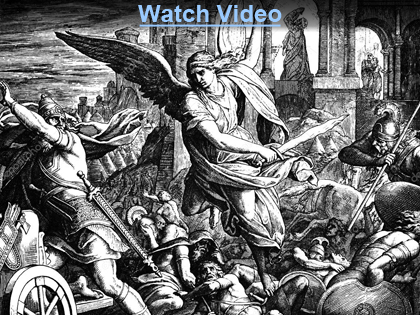
Sermon begins at 13:55
THE SEED LESSON PART 46
In Isaiah 35 we saw the signs of the Messiah and the church and the in the last days with the church triumphant returning as a remnant returning along the King's Highway... a most exquisite representation of the redeemed traveling home to God. Isaiah 35:3-7 - Strengthen ye the weak hands, and confirm the feeble knees. Verse 4 - Say to them [that are] of a fearful heart, Be strong, fear not: behold, your God will come [with] vengeance, [even] God [with] a recompense; he will come and save you.
I Corinthians 15: The Doctrine of Resurrection
The Apostle Paul was spirited in this portion of the Epistle to the Corinthians, explaining the meaning of the Resurrection of Jesus Christ, and why it was of such importance to the Corinthian church. Paul explains that the nature of the bodies raised up will be like planted grain, different kinds of flesh, and of celestial bodies: Incorruptible; glorious; powerful; a spiritual body; and like the risen body of Christ. Paul explains that those believers who are alive at the second coming of Christ will be changed in an instant, to participate in the resurrection with the others. This all places the Christian in a position of great strength, having already won the great victory of the second life promised by Christ. With that said, Paul urges that all of a Christian's energies should be devoted fully to the service of God, assuring them that their labor is not in vain "in the Lord".
 Sunday Morning Class - Job Chapter 9
Sunday Morning Class - Job Chapter 9Invitation: 1 Baptism, Prayers Requested October 20, 2019 Bulletin
Isaiah 35: Prophecy of Healing Miracles of Christ
THE SEED LESSON PART 45
The flourishing state of the Church is consequent to the awful judgments predicted in the preceding chapter. The images employed in the description are so very consolatory and sublime as to oblige us to extend their fulfillment to the period of the Gospel dispensation, when the Messiah shall take unto himself his great power and reign. The fifth and sixth verses were literally accomplished by our Savior and His apostles: but that miracles wrought in the first century were not the only import of the language used by prophet is sufficiently plain from context. They, therefore, have a farther application; and are contemporary with, or rather a consequence of, judgments of God upon enemies of Church in latter days; and so relate to greater influence and extension of Christian faith, conversion of Jews, restoration to their own land, and the second advent of Christ. Much of the imagery of this chapter seems to have been borrowed from the exodus from Egypt: but it is greatly enlivened by life, sentiments, and passions ascribed to inanimate objects; all nature being represented as rejoicing with the people of God in consequence of their deliverance; and administering in such an unusual manner to their relief and comfort, as to induce some commentators to extend the meaning of prophecy to the blessedness of saints in heaven [Isaiah 35:1-10].
 Sunday Morning Class - Job 3 & 4
Sunday Morning Class - Job 3 & 4Invitation: 2 Baptisms, Prayers Requested October 13, 2019 Bulletin
Isaiah 28:16 & I Peter 2:5-9 - Temple of Living Stones
THE SEED LESSON PART 44
[Isaiah 28:1-ff] The destruction of Israel or Ephraim; the drunkenness, sin and folly of Judah; the danger of alliances with Egypt; and they to be reduced by the Assyrians. The date of this chapters must be assigned to a date prior to the capture of Samaria by the Assyrians 722 B.C. and the fall of the northern kingdom. Here, therefore, is an undisputed example of predictive prophecy. The chapter may be divided: (1) Samaria's luxury, drunkenness, and infidelity pave the way for their ruin [Isaiah 28:1-6]. (2) Even the rulers and the religious leaders are no more than filthy drunkards [Isaiah 28:7,8]. (3) The nobility of Ephraim mock [Isaiah 28:9-10]. (4) Isaiah gives God's response to their mockery [Isaiah 11:13]. (5) Judah joins Ephraim in their scoffing rejection of the Lord and takes refuge in a "refuge of lies" [Isaiah 28:14-15]. (6)The true refuge is laid by God in Zion, "the stone," tried, precious, comer [Isaiah 28:16-19]. This verse used as a metaphor [cf: Ephesians 2:19-22, Isaiah 8:6, Isaiah 8:13-16, Zechariah 3:9, Daniel 2:34-35, Romans 9:32-33, Psalm 118:18-21, Matthew 21:42-46, Acts 4:6-13, Romans 9:33, Romans 10:11, I Peter 2:1-10]. Isaiah 9:1-5 Is not a prophecy of immediate future when Isaiah delivered it; but predictive prophecy of "last Days" Old Testament related to times of Messiah. Anguish came upon Zeb'-u-lun & Naph'-ta-li in pre-Christian era due partially to their location on northern border of Promised land. They were first to reap bitter fruit of repeated invasions; and Isaiah's prophecy here shows that treatment of lands of these tribes was worse than that of some others, and they would also be first to enjoy benefits of Christ's Preaching coming kingdom. Look at fulfillment passage from Matthew 4:12-16 [Isaiah 9:6-7]. Five names given the coming Messiah are understood in various ways. Most important is how we understand these five names. It may be these are descriptions of Immanuel's name and not actually names themselves. The Expression 'His name shall be called' is probably idiomatic for 'This will be His character and nature.'" Notice the Peace and Him ruling on David's Throne.
 After a life-threatening injury and miraculous recovery, Eric Jenkins returns to teach Bible class: The Book of Job
After a life-threatening injury and miraculous recovery, Eric Jenkins returns to teach Bible class: The Book of JobInvitation: 1 Baptism, Prayers Requested October 6, 2019 Bulletin
God Sees the Untapped Potential in You
The Apostle Paul was spirited in this portion of the Epistle to the Corinthians, explaining the meaning of the Resurrection of Jesus Christ, and why it was of such importance to the Corinthian church. Paul explains that the nature of the bodies raised up will be like planted grain, different kinds of flesh, and of celestial bodies: Incorruptible; glorious; powerful; a spiritual body; and like the risen body of Christ. Paul explains that those believers who are alive at the second coming of Christ will be changed in an instant, to participate in the resurrection with the others. This all places the Christian in a position of great strength, having already won the great victory of the second life promised by Christ. With that said, Paul urges that all of a Christian's energies should be devoted fully to the service of God, assuring them that their labor is not in vain "in the Lord".
The Virgin Birth of the Mighty God: Isaiah 7-9
THE SEED LESSON PART 43
Isaiah 7:10-17 records wonderful prophecy of The Virgin who would conceive a child who would bear a significant name with meaning of "God with us!" Thus world's Deliverer was hailed as a child, a Son, given by God Himself & destined to achieve eternal redemption for all sons of Adam that are willing to come to God in appointed way taught in New Testament. Note in the Hebrew that prophecy does not say "a virgin," but "The Virgin", a title that could hardly belong to anyone ever born except Virgin Mary, mother of Jesus. Hebrew word al-mah, is correct word vs: beth-u-lah used to describe Isaac's wife Rebecca [Genesis 24:16 & 43] "neither had she known any man". Isaiah 9:1-5 Is not a prophecy of immediate future when Isaiah delivered it; but predictive prophecy of "last Days" Old Testament related to times of Messiah. Anguish came upon Zeb'-u-lun & Naph'-ta-li in pre-Christian era due partially to their location on northern border of Promised land. They were first to reap bitter fruit of repeated invasions; & Isaiah's prophecy here shows that treatment of lands of these tribes was worse than that of some others, & they would also be first to enjoy benefits of Christ's Preaching coming kingdom. Look at fulfillment passage from Matthew 4:12-16. Isaiah 9:6-7 Five names given the coming Messiah are understood in various ways. Most important is how we understand these five names. It may be these are descriptions of Immanuel's name & not actually names themselves. The Expression-`His name shall be called,' is probably idiomatic for, `This will be His character and nature.'" Notice the Peace and Him ruling on David's Throne.
The Gospel a Matter of First Importance - I Corinthians 15
When darkness falls upon the day of life, when death has come, and when people gather around a grave, then it is that they turn to this immortal chapter, where are recorded the title deeds of man's highest hope, the Christian gospel's promise of eternal life. Light from this chapter dispels the darkness surrounding the grave; its message reassures the sorrowful, redefines the meaning of life itself and writes upon the tomb the blessed words, "Asleep in Jesus." It speaks at every funeral. Apostolic power and inspiration charge every word of this chapter with everlasting significance, which has been neither dimmed nor eroded by the passing of nineteen centuries. Even the mysteries of it, which people may not fully understand, have power to quicken the human spirit and rekindle the fires of faith. This heavenly message are so vast that finite man may neither completely comprehend nor intelligently deny it; thus leaving every man the moral option of trusting the Father's promise or turning to the blackness of total despair. It is the voice of God the Father of mankind that speaks to people here; and, for all who listen, it promises that nothing can harm the Father's child, that there is no need to fear, and that even life's sorrows, infirmities and sufferings are not without purpose, and that none of life's labors are in vain "in the Lord."
 Sunday Morning Class - Rightly Interpreting the Scriptures
Sunday Morning Class - Rightly Interpreting the ScripturesInvitation: Prayers Requested September 15, 2019 Bulletin
Isaiah 11: The Peaceful Kingdom of God
THE SEED LESSON PART 42
Again in this chapter Isaiah returns to one of his favorite topics, the Messiah and his kingdom, revealing that he will descend through the posterity of the family of Jesse, thus the Root of Jesse ie: King David, the Branch. This follows logically upon the projected fulfillment of the destruction both of Israel and of Assyria; but it is significant that whereas there were no sprouts or shoots coming up from the felled forest of Lebanon, since cedars do not produce sprouts after being cut down. God's choice of the metaphor, therefore, in his use of the word "Lebanon" for Assyria, shows that Assyria would never recover from their destruction. However, Judah was represented by another type of tree, such as an oak, that will indeed preserve life after being cut down, and will send forth a sprout or shoot to make a new tree. Note that both Assyria and Israel are by this prophecy doomed to be cut down or destroyed. True to Isaiah's promise of a revelation from God a little at a time, "line upon line, precept upon precept, here a little and there a little", Isaiah here gives additional information about: (1) the Messiah; (2) kingdom of God; (3) the character of Christians; (4) the punishment of Israel; (5) the destruction of Assyria; (6) the call of the Gentiles; and (7) the triumph of Christianity going into all the World Preaching the Gospel. Of Christ.
Hebrews 11: Without Faith, it is Impossible to Please God
The Hebrews writer says in Hebrews 11:6, that it is impossible to please God without faith, and that the components of this faith is the existence of God, the moral government of God, and knowing that God will reward those who strenuously search for Him. Before this point in Hebrews 11, the Hebrews writer offers examples of those who were justified in this exact same faith. Paul elaborates on this in Romans 4, regarding that it is not through the law or the circumcision that Christians are justified, but through the faith like the faith of Abraham.
Hermeneutics: "The Last Days" - Isaiah 2
THE SEED LESSON PART 41
Hermeneutics (from Greek hermeneutikos, from hermeneuein 'interpret'): Study of the method and principles of interpretation of the Bible.
Words have meaning, we have a word revelation, and words define words as seen below.
Judah = The Messiah Promised Born Tribe of Judah [Genesis 49:10] = Jesus [Matthew 1:2-3].
Jerusalem = Proclamation of Kingdom from Jerusalem [cf: Luke 24:49 & Acts 1:8]. Last Days = Pentecost 30 AD -
Began the Church Age [Acts 2:16-17 & Hebrews 1:1-2]. Mountain = Metaphor for Kingdom [
cf: Daniel 2:28-44] therefore Kingdom of God = Church. The Lord's House = The Churches of Christ [cf: I Timothy 3:15].
All Nations = Gentiles and Jews united in one Church [cf: Matthew 28:18-20 & Mark 16:15-16]. He Will Teach Us =
Jesus Divine Teacher [cf: John 6:44-45, Isaiah 54:13 & Hebrews 1:1-2] We Will Walk In His Paths [
Matthew 5-7], "The Way" is a common metaphor in New Testament Christianity. Out Of Zion Shall Go Forth The Law = Law of Liberty
[cf: James 1:25, 2:8 & Matthew 22:36-40] Word Of The Lord From Jerusalem = Zion [Hebrews 12:22;
Revelations 21:1-2, Luke 24:49, Act, 1:8]. He Shall Judge Among The Nations = Jesus the Judge of all [Hebrews 9:27
& II Corinthians 5:10]. Shall Rebuke Many People = The Great Judgment Day [cf: Matthew 25:41-46 &
II Thessalonians 1:8]. "...they shall beat their swords into plowshares and spears into pruning hooks" [Isaiah 2:4, Matthew 5:3-45 &
22:37].
I Corinthians 13: The Love Chapter
The chapter falls into three divisions: (1) the absolute necessity of love [I Corinthians 13:1-3], (2) the characteristics of love [I Corinthians 13:4-7], and (3) the permanence of love [ I Corinthians 13:8-13]. Despite this classification, I Corinthians 13:13 evidently stands apart. The disorders of the Corinthian church are continually in view. Both the positive and negative attributes of love in I Corinthians 13:4-7 are clearly the opposites of conditions among the Corinthians. Also, such words as "tongues ... prophecy ... knowledge ... faith so as to move mountains cannot be understood, except as references to the miraculous gifts at Corinth. This chapter should never be construed as merely an abstract teaching on love, parenthetically inserted. The situation at Corinth was the center attention.
 Sunday Morning Class - Job: Judgements of Men
Sunday Morning Class - Job: Judgements of MenInvitation: 1 Baptism, Prayers Requested August 18, 2019 Bulletin
The Messianic Psalms
THE SEED LESSON PART 40
The Old Testament messianic prophecies contain two portraits of Christ. On the one hand, we have the plain picture like Psalm 2 of the reigning Kingly Messiah like David who conquers the Gentile world, rules all nations and lives forever. On the other hand, like Psalm 22 we have the hidden obscure portrait of the Suffering Servant. This one "has no beauty that we should desire Him". He lives in obscurity, is rejected by the people, and dies a terrible death. But his death is redemptive as a sin offering, and he is raised from the dead in triumph to lead many souls to glory. Christians are well aware that these two portraits correspond to the first coming of Christ, His reigning over His Church Kingdom after His resurrection finalized in His 2nd coming. In one picture He is to suffer and atone for sin, and the second deliver up the Kingdom to the Father. Satan behaved very strangely, if the devil understood Jesus had come to die for human sin, why would Satan actively cooperate in Jesus' atoning death? Hadn't Jesus often warned that the cross would be the undoing of Satan? Because of the cross Paul said: "[And] having spoiled principalities and powers, he made a shew of them openly, triumphing over them in it" [Colossians 2:15]. Why would a creature as brilliant as Satan actually assist in doing the very thing that would destroy himself? Maybe Paul offers us another explanation in I Corinthians 2:6-8. Could it be that Satan, the great adversary, didn't know that Jesus actually wanted to die? How could Satan have made such a colossal blunder when all the information was right there in front of him for hundreds of years? He would have had the same information everyone else had - the predictive scriptures. But God crafted the suffering prophecies in such a way that a reader before the time of Christ could not have discovered the plan for the Messiah to suffer before reigning. God was intentionally veiling his intentions in the first coming of Christ so Satan and the unbelieving Jews would fall into their own snare.
I Corinthians 12: Members Of Christ's Body
This and the following two chapters were written to correct disorders which had arisen in the Corinthian church over the question of spiritual gifts, especially with regard to envy and strife over the relative importance of various gifts. The great test of all spirituality is its relation to Christ and his spiritual body the church. So-called "gifts" that led to the denunciation of Christ or any conduct that contravened the will of Christ were not of God, but of the devil. "Gifts" that take people away from the church are not of God's Spirit at all, but are derived from the evil one [I Corinthians 12:1-3]. There is diversity in the unity of the church, since the Lord has not given the same gifts to all Christians [I Corinthians 12:4-11]. The great metaphor of "the body" is developed as a figure of Christ's spiritual body, the church [I Corinthians 12:12-31].
 Sunday Morning Class - Job 4: The Miserable Comforters
Sunday Morning Class - Job 4: The Miserable ComfortersInvitation: Prayers Requested August 4, 2019 Bulletin
Psalm 22:1-31 - Prophecy of the Crucifixion of Christ
THE SEED LESSON PART 39
Written 1,000 years before Jesus, this is so vivid a description of the crucifixion of Jesus one would think that the writer was personally present at the Cross. Jesus' dying words [Psalms 22:1 cf: Matthew 27:46], sneers of enemies [Psalms 22:7-8 cf; Matthew 27:39 & 43], piercing of hands and feet [Psalms 22:16 cf: John 19;16-18] and casting of lots for his garments [Psalms 22:18 cf: John 19:23-24] are some events described. None of these statements are applicable to David or any known event or person in history, except the crucifixion of the Son of God. There is only one way of interpreting this psalm - it is plain and straightforward a predictive prophecy of the crucifixion of Jesus Christ.
 Sunday Morning Class - Acts 1: The Great Commission
Sunday Morning Class - Acts 1: The Great CommissionInvitation: 1 Baptism, Prayers Requested July 28, 2019 Bulletin
The Corinthian Church and the Lord's Supper
This and the following three chapters are usually construed as Paul's corrective admonition regarding the "worship services"; but since the first paragraph [I Corinthians 11:1-16] undoubtedly refers to social customs, there being even some doubt of its application to any worship service whatever, there is no need for adherence to such an outline. Throughout this epistle, the apostle Paul dealt with miscellaneous church conditions and disorders, making it nearly impossible to fit the epistle into any form of classical outline. The first paragraph regards the veiling of women [I Corinthians 11:1-16], and the second teaches concerning the Lord's supper [I Corinthians 11:17-34].
Psalm 2: "Thou Art My Son, This Day Have I Begotten Thee"
THE SEED LESSON PART 38
This Psalm treats of the opposition raised, both by Jew and Gentile, against the kingdom of Christ [Psalm 2:1-3]. Christ's victory, and the confusion of his enemies [Psalm 2:4-6]. The promulgation of the Gospel after his resurrection [Psalm 2:7-9]. A call to all the potentates and judges of the earth to accept it, because of the destruction that shall fall on those who reject it [Psalm 2:10-12].
I Corinthians 10 & 11: Communion
This and the following three chapters are usually construed as Paul's corrective admonition regarding the "worship services"; but
since the first paragraph [I Corinthians 11:1-16] undoubtedly refers to social customs, there being
even some doubt of its application to any worship service whatever, there is no need for adherence to such an outline. Throughout this
epistle, the apostle Paul dealt with miscellaneous church conditions and disorders, making it nearly impossible to fit the epistle into
any form of classical outline.
The first paragraph regards the veiling of women [I Corinthians 11:1-16], and the second
teaches concerning the Lord's supper [I Corinthians 11:17-34].
 Sunday Morning Class - James 4: Conflict in the Body
Sunday Morning Class - James 4: Conflict in the BodyInvitation: Prayers Requested July 7, 2019 Bulletin
The Davidic Covenant
THE SEED LESSON PART 37
Christ is promised to come through a seed (child) of a woman, a seed of Noah [Genesis 9:8-9], through Abraham [Genesis 12:1-3, 12:4-6]. That seed is Christ [Galations 3:16]. The Seed Covenant is promised again to Abraham [Genesis 22:16-18]. He is to come through the tribe of Judah [Genesis 49:10-11], and King David is through the tribe of Judah. David brings the Ark to Jerusalem [II Samuel 6], appoints singers [Psalm 105:1-3]; we as Christians are to sing [Ephesians 4:13]. David desires to build God's house [II Samuel 7:1]. Nathan says do it [II Samuel 7:3]. God not wanting fine architecture [II Samuel 7:4-7, Isaiah 66:12]. 1st Christian martyr, Stephen shows Jews their sins [Acts 7:2]. God is everywhere, [Exodus 3:5, Acts 7:36, Acts 7:45-50, I Corinthians 6:19]. God's Spirit leaves temple [Ezekiel 11:22-23]. Goes to Mount of Olives [Zechariah 14:4]. Amos prophesies temple [Amos 9:11]; temple built [Acts 15:16-18]. No limitation on God's Presence [I Chronicles 17:4, II Samuel 7:4-5]. God does not want a temple [II Samuel 7:8-11]. Explanation of prophecy [Revelations 3:7, 5:5 & 22:16]. Davidic Covenant, [II Samuel 7:12-17]. Jesus' Kingdom [John 6:40, Acts 2:29-36, II Samuel 7:13, Mark 16:18, Acts 2:38 & 47, I Timothy 3:15, Hebrews 3:6, I Peter 2:5, Romans 12:1-2, II Samuel 7:14, Psalm 2:7 & 89:26-27, Acts 13:32-33, Hebrews 1:5]; God Jesus' Father-Jesus His Son. Not speaking of Solomon-Christ suffered [Isaiah 53:5, II Samuel 7:15-16].
 Sunday Morning Bible Class - Acts 1: The New Covenant Begins
Sunday Morning Bible Class - Acts 1: The New Covenant BeginsInvitation: Prayers Requested June 30, 2019 Bulletin
I Corinthians 10: "Do What It Says"
In I Corinthians 10:1, Paul refutes the impression that the Lord's Supper and Christian Baptism causes immunity to any contamination from idolatry; baptism is an antitype of Israel's passing through the Red Sea [I Corinthians 10:2]; the spiritual food of the Gospel is an antitype of Israel's manna [I Corinthians 10:3]; the spiritual drink from the rock that was Christ is an antitype of water from the cleft rock [I Corinthians 10:4]; Paul warns of the results of disobedience by bringing Israel up as an example [I Corinthians 10:5]; baptism and partaking in the Lord's table does not cause immunity to sin [I Corinthians 10:6]; a warning about idolatry [I Corinthians 10:7]; a warning about sexual immorality [I Corinthians 10:8]; a warning about testing God's obedience to His law [I Corinthians 10:9]; the Old Testament is an example and warning to Christians [I Corinthians 10:11].
 Sunday Morning Class - James 2: Faith Without Works?
Sunday Morning Class - James 2: Faith Without Works?Invitation: Prayers Requested June 23, 2019 Bulletin
Hebrews 13: Hospitality to Strangers
We're speaking on the first two versus of Hebrews 13. These are worthy indeed of standing thus alone as a divine injunction of the greatest importance, speaking directly to our mission here at the Main Street Church of Christ. Our brother! He stands before us, like ourselves, made in the image of God, an heir of eternal life, and a beneficiary of the blood of Christ; and our love should reach out to him with all of the emotional thrust of which the heart is capable. And who is my brother? Not him alone who belongs to my little circle, but the "stranger," as taught in these verses, that man we may never have seen before, but a man in extremity, needing love and compassion in a world that has little of either, such a man as that befriended by the Good Samaritan. Every man is my brother; for, if I miss him in Christ, I shall hit him in Adam!
 Sunday Morning Class - James: No Respecter of Person
Sunday Morning Class - James: No Respecter of PersonInvitation: Prayers Requested June 16, 2019 Bulletin
I Corinthians 9: The Christian Race
Paul exhorts Christians to earnestly contend in the contest of Christian life. "For though I am free from all, I have made myself a servant to all, that I might win more of them." [I Corinthians 9:19] Our God has put in us the ability to alter history by our decisions. "To the Jews I became as a Jew, in order to win Jews. To those under the law I became as one under the law (though not being myself under the law) that I might win those under the law. To those outside the law I became as one outside the law (not being outside the law of God but under the law of Christ) that I might win those outside the law. To the weak I became weak, that I might win the weak. I have become all things to all people, that by all means I might save some. I do it all for the sake of the gospel, that I may share with them in its blessings." [I Corinthians 9:20-23] "And when they heard that he was addressing them in the Hebrew language, they became even more quiet..." [Acts 22:2] Many times we are guilty of doing the opposite and placing unnecessary stumbling blocks. "Do you not know that in a race all the runners run, but only one receives the prize?" [I Corinthians 9:24] "Every athlete exercises self-control in all things. They do it to receive a perishable wreath, but we an imperishable." [I Corinthians 9:25] "But I discipline my body and keep it under control, lest after preaching to others I myself should be disqualified." [I Corinthians 9:27] If we want to be a professional athlete in the race of Christian life, we need to do what professional athletes do.
 Sunday Morning Class - James: Live in the Spirit
Sunday Morning Class - James: Live in the SpiritInvitation: Prayers Requested June 9, 2019 Bulletin
I Peter 5: To Be A Christian Is To Be A Leader
This chapter concludes the epistle with exhortations concerning the eldership and the general attitude of submission and obedience for all. The need for adequate leadership [I Peter 5:1]; suffer in the name of Christ to be a spiritual leader for God's children [I Peter 5:2]; this charge is not to be tyrannical and possessive [I Peter 5:3]; an Elder's glory awaits in heaven by Jesus Christ's own hand [I Peter 5:4]; defer with humility to church Elders, cast your anxieties upon Christ [I Peter 5:5-7]; be of a sober mind to watch carefully for Satan's influence in the midst, and do not yield to him [I Peter 5:7-8]; God will grace you with the strength to rebuke Satan [I Peter 5:10]; the Christian may safely rest his case in God [I Peter 5:11]; salutations to the receivers of this epistle [I Peter 5:12]; salutations from Rome to the receivers [I Peter 5:13]; embrace one another in Christ's name [I Peter 5:14].
I Corinthians 8 & 9: Hospitality for the Saints
Paul established four timeless principles of Christian behavior in the course of his writing on this subject, these being: (1) that what is permissible behavior for one man may, in certain circumstances, be dangerous and sinful in another; (2) that no Christian conduct should be evaluated solely from the standpoint of knowledge, but in the light of the love of brethren, with regard to its possible influence upon others, and in the light of what others may think of it; (3) that no Christian has a right to practice anything, however innocent it may be to him, if in so doing he shall damage the faith of another; and (4) that whatever is done, even to the weakest member of the body of Christ, is also done to Christ himself, and that weakening or destroying the faith of even the least and weakest of Christ's members is a sin of the greatest magnitude against Christ himself. "A pleasure or an indulgence which may be the ruin of someone else is not a pleasure but a sin."
I Corinthians 7: Difficult Christian Answers
Like many other chapters which are sometimes labeled "difficult," this one contains some of the most instructive teaching in the New Testament, and affords glimpses of the apostolic method which add greatly to one's faith in the integrity of the apostles. This is one of the most interesting chapters in the New Testament, due to the nature of its being Paul's apostolic answers to no less than six questions propounded in a letter from the church at Corinth. Paul starts with the duties of married Christian couples [I Corinthians 7:1-7]; The question of singleness and celibacy [I Corinthians 7:8-9]; The question about divorce [I Corinthians 7:10-11]; The question about Pagan-Christian marriages [I Corinthians 7:12-16]; Becoming a Christian does not wipe your pre-existing obligations from you [I Corinthians 7:17-24]; The question of Christian fathers arranging marriages [I Corinthians 7:25-38].
 Sunday Morning Bible Class - I John Review Part 2
Sunday Morning Bible Class - I John Review Part 2Invitation: Prayers Requested May 19, 2019 Bulletin
Psalm 51: The Ultimate Prayer for Forgiveness
There may be no more impassioned or beautiful prayer for forgiveness and renewal in the Bible than here. The poet's wrongdoing has overwhelmed him. His remorse and his plea are intense. David accepts personal responsibility for what he's done [Psalm 51:1-9]. Four different words for sin: transgressions [Psalm 51:1,3]; iniquity [Psalm 51:2,5,9]; evil [Psalm 51:4]; sin [Psalm 51:2-5,9]. David's multiple petitions for forgiveness [Psalm 51:1,2,7,9,14]. David's prayer for renewal [Psalm 51:10-13]. David's vow to offer spiritual sacrifices [Psalm 51:14-17]. David's intercession for Jerusalem [Psalm 51:17-18].
I Corinthians 6: Flee Immorality, Seek Righteousness
A vast proportion of the whole Corinthian population participated in such sins as are catalogued here in I Corinthians 6:9-10; Paul calls attention to the conditions from which they had been rescued by Christ [I Corinthians 6:11]; The purpose of the body is not the gratification of its appetites, but it is for the Lord, a reference to the indwelling of the Spirit [I Corinthians 6:13]; We will be raised through the power of God, [I Corinthians 6:14]; Protesting the incongruity of debasing such members of Christ in immorality [I Corinthians 6:15]; The true Christian, having been joined to the Lord through his conversion from sin, is one in spirit with the Lord [I Corinthians 6:17]; Flee fornication [I Corinthians 6:18]; Your body is a temple of the Holy Spirit which is in you, which you have from God [I Corinthians 6:19]; Glorify God in your body [I Corinthians 6:20].
 Sunday Morning Bible Class - I John 5: How Do We Know Love?
Sunday Morning Bible Class - I John 5: How Do We Know Love?Invitation: Prayers Requested May 5, 2019 Bulletin
I Corinthians: Church Discipline
Paul starts with ferocious rebuke of the grossest of sins [I Corinthians 5:1]; Mourning the prideful boasting of such sin [I Corinthians 5:2]; Paul reminds that he is among the church in spirit, and can rebuke such sin remotely [I Corinthians 5:3-4]; Paul denounces these sins in the strongest and most potent language possible [I Corinthians 5:5]; Paul reminds the church that such sin can destroy the entire church [ I Corinthians 5:6-8]; He reminds the church not to keep company with the worst sinners among them [I Corinthians 5:9-11]; Paul's main point is that the church must not tolerate the presence of evil in its midst [I Corinthians 5:12].
 Sunday Morning Bible Class - I John 4: Loving God
Sunday Morning Bible Class - I John 4: Loving GodInvitation: 1 Baptism, Prayers Requested April 28, 2019 Bulletin
People Believe What They Want to Believe
There have been many so-called "messiahs" throughout history. There have been revolutionaries, religious leaders and self-proclaimed saviors - but which of these was able to raise himself from the dead? "So the Jews said to him, 'What sign do you show us for doing these things?' Jesus answered them, 'Destroy this temple, and in three days I will raise it up.'" [John 2:18-19]. Speaking of His life Jesus declared: "No one takes it from me, but I lay it down of my own accord. I have authority to lay it down, and I have authority to take it up again. This charge I have received from my Father." [John 10:18]. Jesus had to leave us, so that the Holy Spirit could be sent; "But because I have said these things to you, sorrow has filled your heart. Nevertheless, I tell you the truth: it is to your advantage that I go away, for if I do not go away, the Helper will not come to you. But if I go, I will send him to you. And when he comes, he will convict the world concerning sin and righteousness and judgment: concerning sin, because they do not believe in me; concerning righteousness, because I go to the Father, and you will see me no longer; concerning judgment, because the ruler of this world is judge." [John 16:6-11]. "This Jesus God raised up, and of that we all are witnesses. Being therefore exalted at the right hand of God, and having received from the Father the promise of the Holy Spirit, he has poured out this that you yourselves are seeing and hearing." [Acts 2:32]. People believe what they want to believe. Those who are willing to believe can find plenty of proof through the scriptures and through common-sense logic. "For those who do not believe, no proof is sufficient - for those who do believe, no proof is necessary." [Unknown Author].
 Sunday Morning Bible Class - I John 3:9ff: Christians Don't Sin?
Sunday Morning Bible Class - I John 3:9ff: Christians Don't Sin?Invitation: 2 Baptisms, Prayers Requested April 21, 2019 Bulletin
Paul Rebukes Contented Wealth
Paul refutes any notion of approval of factions, instead rebuking factious leaders in Corinth [I Corinthians 4:6]. God gives to every man life, talent, ability, opportunity, health, personality, strength, everything that he is or has [I Corinthians 4:7]; Paul strongly disapproves of the pompous and overblown leaders of both the church and city of Corinth [I Corinthians 4:8]; Paul draws the pictures of himself and fellow apostles as "the last and most worthless band" brought fourth to die in the great arena, where all view the spectacle, [I Corinthians 4:9]; Paul rebukes the disgusting development and moral ugliness of the behavior of his child, the Church in Corinth [I Corinthians 4:10-13]; Paul isn't trying to be rough or harsh, but corrective as a father would be to his children [I Corinthians 4:14].
 Sunday Morning Bible Class - Walking in the Light
Sunday Morning Bible Class - Walking in the LightInvitation: Prayers Requested April 14, 2019 Bulletin
Samson: The World's Strongest and Weakest Man
THE SEED LESSON PART 36
[Judges 13-16] This narrative of Samson is an unmitigated tragedy. No potential saviour-figure offered MORE promise than Samson, or delivered LESS. Israel had sunk to a new low; and these two final incidents fully expose Israel's plight. It is difficult indeed to imagine a more shameful situation for God's Chosen People than that in which their Judge and accepted leader was blinded and made to do the work of a mule, grinding wheat in the mill of the Philistines, and suffering the humiliation of being compelled to entertain his captors at the very festival where they were celebrating Samson's defeat. Sin will BLIND you: [II Peter 1:9]. Sin will BIND you: [Acts 8:23]. Sin will GRIND you: like a slave [Romans 6:16]. With the story of Samson, the era of the Judgeship in Israel was concluded. Samuel indeed judged Israel for awhile, but it was he who anointed Saul as Israel's first king, bringing in the institution of the monarchy. It is not hard to understand why many in Israel began to clamor for a king. [Cf: I Peter 1:3-10 & Romans 1:18 f]
 Sunday Morning Bible Class - Suffering for the Cause of Christ
Sunday Morning Bible Class - Suffering for the Cause of ChristInvitation: Prayers Requested April 7, 2019 Bulletin
I Corinthians 4: Stewards of the Mysteries of God
Paul and Apollos are to Jesus as doctors serving under a principal physician [I Corinthians 4:1]; Trustworthiness was the outstanding characteristic of a good steward, and it was that which Paul brought into view here [I Corinthians 4.2]; The Lord, the righteous judge of all people [I Corinthians 4:3]; The only judgment that matters will be from by the Lord at the final judgment, and people do not have sufficient competence to judge one another, or themselves [I Corinthians 4:4-5].
 Sunday Morning Bible Class - The Bible: Instructions for Returning Home
Sunday Morning Bible Class - The Bible: Instructions for Returning HomeInvitation: Prayers Requested March 31, 2019 Bulletin
The Penal Disposition Theory
The foundation of Paul's teaching is stated concisely in I Corinthians 2:2 - "For I decided to know nothing among you except Jesus Christ and him crucified". The Gospel is the most lofty and important concept to ever enter the heart of man and should never be considered less important than "deeper" concepts of the Bible. The Gospel of Christ is offensive [John 3:19-20]. Our job is to point to Jesus [John 1:29]. Paul laboured to condemn the world of sin in order to make the need for radical salvation clear. When Christ comes he will convict the world concerning sin, righteousness and judgement [John 16:8]. If we don't preach on God's attitude on sin and lawlessness, how is the Holy Spirit to bless us? There is none holy like God [I Samuel 2:2]. He is righteous and kind [Psalm 145:17]. Just as a pig doesn't understand that he's filthy, we by nature don't know that we're sinful, and just as a pig would not be allowed in a palace with his filth, we in our sin cannot be allowed in God's presence. God is just by nature, and therefore must judge sin. He is also merciful, and therefore He put into place a system to redeem us from sin, beginning with the animal sacrifices of the Old Testament and culminating in the sacrifice of Christ. In light of Christ's love and sacrifice for us, what sort of people should we be toward each other?
I Corinthians 3: The Foundation of the Church of Christ
Paul begins to change metaphors in the last two words of I Corinthians 3:9: God's building. Paul lays the foundation of Christ, others continue the building [I Corinthians 3:10]. No other foundation but Christ [I Corinthians 3:11]. Paul explains in metaphor how the Church must be made. The first three materials are True Christians, the latter of worldly-minded hypocrites [I Corinthians 3:12]. The Church surviving the day of judgment [I Corinthians 3:13]. Persons led to Christ through the efforts of any Christian may defect from the faith, proving themselves wood, hay or stubble [I Corinthians 3:14-15]. The true temple of God, therefore, has never been anything else except the church of Jesus Christ our Lord [I Corinthians 3:16]. "It is clear what is meant by the judgment of God: it may refer to suffering loss, but also to eternal life." [I Corinthians 3:18] Admonitions of previous behavior; correction in where wisdom comes from [I Corinthians 3:19]. "Human thought is fruitless in the sense of not producing anything of spiritual value that redeems man from sin..." [I Corinthians 3:20] Paul condemned the sin of their calling themselves after the names of men [ I Corinthians 3:21]. Here the Christian is viewed as the possessor of everything in Christ [I Corinthians 3:22]. Affirmation of the Corinthian church as being of Christ, in Christ [I Corinthians 3:23].
 Sunday Morning Bible Class - Ecclesiastes 5: Worthlessness of Wealth
Sunday Morning Bible Class - Ecclesiastes 5: Worthlessness of WealthInvitation: Prayers Requested, 1 Baptism March 17, 2019 Bulletin
Joshua's Long Day - The Sun Shine Still & the Moon Shine Still
THE SEED LESSON PART 35
[Lev. 18:25, Deut.12:2-3, 12:30-31] One of Moses' last acts was to commission Joshua as his successor, Joshua is to conduct a Holy War and drive the wicked Canaanite people from land [Josh. 1:1-9, 3:14-17, 5:1]. In the "we" section, the author claims eyewitness. Jericho's Defenses reflect the Middle Bronze Age (1,750BC - 1,500BC), but there is evidence that some cities like Jericho that had not been destroyed since the Middle Bronze Age continued to use their old defense walls into the Late Bronze Age. Jericho was built on a tell or hill, and the present-day archaeological site known as City IV encompassed only a few acres and less than 2,000 people lived there. [Joshua 6:2] - The word indicates the wall fell beneath itself. Archaeologist John Garstang dug the site during the 1930's and found a collapsed double city wall of mud bricks built upon retaining walls of stone. Garstang dated the destruction of City IV to 1,400BC. Recently in the 1980's a new dig shows that this retaining wall is setting on bed rock. From 1952 to 1958 Kathleen Kenyon excavated Jericho. Her conclusions were based solely on the absence of Cypriot bi-chromeware pottery. It is fundamental science that the absence of evidence is NOT evidence. Bi-chromeware is a key marker for the transition to the beginning of the Late Bronze Age from the previous Middle Bronze Age. Brant Wood, an expert in Canaanite pottery traveled the world over examining both Garstang and Kenton's pottery finds in Museums. Kenyon did not look at the pottery that Garstang had found in City IV, which included the very Cypriot Bi-chromeware that she could not find, which was the basis of her conclusion that the Bible was fiction. Furthermore she ignored all the pottery she did find which was all Canaanite, and every piece dated to about 1,400BC - at the beginning of the Late Bronze Age (1,450-1,400BC). Woods also examined Egyptian Scarabs impression seals. The royal tombs of Jericho contained these Scarabs from the Egyptian 18th dynasty, a time when Kenyon said there was no city of Jericho. Well, the Scarabs found in the royal tombs prove that there was a King of Jericho during the Late Bronze Age. Scarabs of Hatshepsut, Thutmose III & Amenhotep date right up to 1,400 BC. You will remember it was Amenhotep II that we identified as the Pharaoh of the Exodus [I Kings 6:1].
 Sunday Morning Bible Class - Philippians 1: Joy in Adversity
Sunday Morning Bible Class - Philippians 1: Joy in AdversityInvitation: Prayers Requested March 10, 2019 Bulletin
I Corinthians 3: Trust in God
Paul pointed out that even apostolic authority was not absolute and that even he himself and Apollos were but stewards of Christ, their first concern being to please the Lord, and not to accommodate their teaching to win favor with false teachers. He stated that the lower courts of conscience and public opinion were inferior to the judgment of the Lord [I Corinthians 4:1-5]. We agree with Adam Clarke that a more logical division of the chapters would have been to extend chapter 3 through the fifth verse here. In I Corinthians 4:6, Paul pointed out that his use of his own name and that of Apollos was not to be construed as an admission that he and Apollos had actually headed any divisive parties in Corinth, but that he had used these names figuratively for the purpose of teaching against all divisions. Most of the remainder of the chapter deals with the false teacher, without naming him, ending with a dramatic promise that he would return to Corinth, the Lord willing, and that the Lord would enable him to vanquish the false teacher and set the Corinthians once more in the right way of humility and service. He severely condemned their vain-glorious boasting, egotism and conceit [I Corinthians 4:7-21].
Conquest of Canaan & Now to Conquer All The World
THE SEED LESSON PART 34
[Lev. 18:25, Deut.12:2-3, 12:30-31] One of Moses's last acts was to commission Joshua as his successor, Joshua is to conduct a Holy War and drive the wicked Canaanite people from land [Josh. 1:1-9, 3:14-17, 5:1]. In the "we" section, the author claims eyewitness. Jericho's Defenses reflect the Middle Bronze Age (1,750BC - 1,500BC), but there is evidence that some cities like Jericho that had not been destroyed since the Middle Bronze Age continued to use their old defense walls into the Late Bronze Age. Jericho was built on a tell or hill, and the present-day archaeological site known as City IV encompassed only a few acres and less than 2,000 people lived there. [Joshua 6:2] - The word indicates the wall fell beneath itself. Archaeologist John Garstang dug the site during the 1930's and found a collapsed double city wall of mud bricks built upon retaining walls of stone. Garstang dated the destruction of City IV to 1,400BC. Recently in the 1980's a new dig shows that this retaining wall is setting on bed rock. From 1952 to 1958 Kathleen Kenyon excavated Jericho. Her conclusions were based solely on the absence of Cypriot bi-chromeware pottery. It is fundamental science that the absence of evidence is NOT evidence. Bi-chromeware is a key marker for the transition to the beginning of the Late Bronze Age from the previous Middle Bronze Age. Brant Wood, an expert in Canaanite pottery traveled the world over examining both Garstang and Kenton's pottery finds in Museums. Kenyon did not look at the pottery that Garstang had found in City IV, which included the very Cypriot Bi-chromeware that she could not find, which was the basis of her conclusion that the Bible was fiction. Furthermore she ignored all the pottery she did find which was all Canaanite, and every piece dated to about 1,400BC - at the beginning of the Late Bronze Age (1,450-1,400BC). Woods also examined Egyptian Scarabs impression seals. The royal tombs of Jericho contained these Scarabs from the Egyptian 18th dynasty, a time when Kenyon said there was no city of Jericho. Well, the Scarabs found in the royal tombs prove that there was a King of Jericho during the Late Bronze Age. Scarabs of Hatshepsut, Thutmose III & Amenhotep date right up to 1,400 BC. You will remember it was Amenhotep II that we identified as the Pharaoh of the Exodus [I Kings 6:1].
 Sunday Morning Bible Class - Luke 24: The Road to Emmaus, The Great Commission
Sunday Morning Bible Class - Luke 24: The Road to Emmaus, The Great CommissionInvitation: Prayers Requested February 24, 2019 Bulletin
I Corinthians 2-3: A Call to Maturity
We speak wisdom, however, among them that are full-grown: yet a wisdom not of this world, nor among the rulers of this world, who are coming to naught. All Christians begin as "babes in Christ" [I Corinthians 3:1]; but through prayerful study and growth they may attain unto the "stature of the fullness of Christ" [Ephesians 4:13]. To all who are thus full-grown is revealed a measure of the knowledge of God's wisdom. Paul's blunt reference to this truth states that it forcefully applies even to "the rulers of this world." Not even they ever attained to any wisdom whatever in any manner comparable to the wisdom of God, the proof of it being that they themselves "are coming to naught." And I, brethren, could not speak unto you as spiritual, but as unto carnal, as unto babes in Christ [I Corinthians 3:1]. The SPIRITUAL were those who, after conversion, had continued to grow in the grace and knowledge of the Lord, no longer continuing as "babes in Christ." The CARNAL were those who were continuing to live like the unconverted, full of envy, jealousy and strife.
 Sunday Morning Bible Class - II Corinthians 15-16: Reconciled Through Christ
Sunday Morning Bible Class - II Corinthians 15-16: Reconciled Through ChristInvitation: Prayers Requested February 17, 2019 Bulletin
I Corinthians 1:17ff - The Weak Things of the World
"For the preaching of the cross is to them that perish foolishness; but unto us which are saved it is the power of God. For it is written, I will destroy the wisdom of the wise, and will bring to nothing the understanding of the prudent." [I Corinthians 1:18]; God will destroy the wisdom of the wise, and will bring to nothing the understanding of the prudent [I Corinthians 1:19]; The Jews require a sign, and the Greeks seek after wisdom [I Corinthians 1:22]; Christ is the power of God and the wisdom of God, for the foolishness of God is wiser than men, and the weakness of God is stronger than men [I Corinthians 1:24-25]. God chose what is foolish in the world to shame the wise and what is weak in the world to shame the strong [I Corinthians 1:27]; God chose what is low and despised in the world, even things that are not, to bring to nothing things that are [I Corinthians 1:28], so that no human being might boast in the presence of God [I Corinthians 1:29].
 Sunday Morning Bible Class - "I will praise thee, O Lord, with my whole heart"
Sunday Morning Bible Class - "I will praise thee, O Lord, with my whole heart"Invitation: Prayers Requested February 10, 2019 Bulletin
"There shall come a Star out of Jacob and a Scepter shall rise out of Israel"
THE SEED LESSON PART 33
Numbers 24:17 I shall see him, but not now: I shall behold him, but not nigh: there shall come a Star out of Jacob, and a Scepter shall rise out of Israel... Although men came to believe a star would & did herald the birth of the Messiah... Christ himself and not the star that was seen at his birth is the primary fulfillment of the prophecy. Revelation 22:16 - "I Jesus have sent mine angel to testify unto you these things in the churches. I am the root and the offspring of David, [and] the bright and morning star." Can anyone imagine two things more unlike than a root and a star? This proves that the Holy Spirit gave these words, for no man would ever have dared to describe the Lord in one breath as a root and a star. Yet, both terms are frequently applied to Christ in Scripture. The metaphor of the root appears in Revelation 5:8; Romans 15:12; Isaiah 11:1-2; & here... That of the star is in Numbers 24:17; Matthew 2:2; II Peter 1:19 & here. Let us Look at the contrast in these metaphors.
 Sunday Morning Bible Class - Luke 24: The Resurrection of Jesus
Sunday Morning Bible Class - Luke 24: The Resurrection of JesusInvitation: Prayers Requested February 3, 2019 Bulletin
I Corinthians: Divisions in the Assembly
Firstly Paul had heard of the contentions among the Corinthians by them which were of the house of Chloe. The apostle reproves their dissensions, and vindicates himself from being any cause of them [I Corinthians 1:10-17]. States the simple means which God uses to convert sinners and confound the wisdom of the wise, etc. [I Corinthians 1:18-21]. Why the Jews and Greeks did not believe [I Corinthians 1:22]. The matter of the apostle's preaching, and the reasons why that preaching was effectual to the salvation of men [I Corinthians 1:23-29]. All should glory in God, because all blessings are dispensed by Him through Christ Jesus [I Corinthians 1:30-31].
 Sunday Morning Bible Class - II Corinthians 5:11-21: The Ministry of Reconciliation
Sunday Morning Bible Class - II Corinthians 5:11-21: The Ministry of ReconciliationInvitation: Prayers Requested January 27, 2019 Bulletin
There is no God but God and Jesus Is His Prophet
"This prophecy, therefore, is very properly referred to JESUS CHRIST in the N.T. as having been fulfilled in Him." Philip had this passage in mind when he said, "We have found him of whom Moses in the law did write, Jesus of Nazareth [John 1:45]." Christ had it in mind himself when he said, "Moses wrote of me [John 5:46]." Stephen declared Christ to be the fulfillment of this prophecy [Acts 7:37]. Peter expressly quoted the prophecy in Acts 3:22-23, as referring to Christ. The very language of this prophecy "Unto him shall ye hearken" was quoted verbatim by Almighty God Himself on the Mount of Transfiguration, and He applied it unequivocally to Jesus Christ alone [Matthew 17:5]. The Samaritans had no O.T. except the five Books of Moses, but upon that basis, and therefore upon the testimony of this passage the Samaritan woman said, "I know that Messiah cometh, he that is called Christ" [John 4:25]. Now this unanimous testimony of Christ, the apostles, and even the Samaritans that Moses "wrote of Christ" has to be a reference to this passage, because, if Moses did not write of Christ in this place, where is it found that he did?
 Sunday Morning Bible Class - Luke 23: The Thieves on Crosses
Sunday Morning Bible Class - Luke 23: The Thieves on CrossesInvitation: Prayers Requested January 20, 2019 Bulletin
I Corinthians: The Formation and Development of the Assembly at Corinth
During his second missionary journey, the Apostle Paul had come to Europe for the first time (around 51 - 54 AD). He also came to Corinth via Philippi, Thessalonica and Athens [Acts 18]. There he remained for 18 months for the Lord "had much people in this city" [Acts 18:10]. Paul began his ministry of preaching the gospel in the synagogues of the Jews. Quite a few came to believe in the Lord Jesus. But when other Jews refused the message, Paul withdrew from them and spoke to Greeks also. This is how a large assembly of Jews and Greeks came into existence in this city as a result of the apostle's activity [I Corinthians 4:15; Acts 18:4]. Corinth was a large seaport and commercial city on the Isthmus of Northern Greece and the Peloponnese with two well-known seaports (Cenchrea and Lech-ion). Its central location made Corinth a centre of trade, culture and philosophy, but also of entertainment, immorality and idolatry. The immorality of the Corinthians was proverbial.
 Sunday Morning Bible Class - II Corinthians 5: A House Not Made With Hands
Sunday Morning Bible Class - II Corinthians 5: A House Not Made With HandsInvitation: Prayers Requested January 13, 2019 Bulletin
Exodus 25-40 & Hebrews 9: The Church of Christ is The Temple of God
THE SEED LESSON PART 32
The O.T. sanctuary mentioned here is doubtless the tabernacle constructed and erected in the wilderness by Moses upon instructions of God; and the fact that the more ancient tabernacle, rather than Solomon's or the Herodian temple, is viewed here should not be thought as an indication that the temple was not then standing, or that the recipients of this epistle were not Jewish. It is precisely in line with the author's thesis that he should go back to the original tabernacle, erected according to the pattern God gave Moses, rather than appeal to the temple then standing, which, after all, had been copied from the tabernacle in all its essential details. The word "ordinances" in this place means "regulations." Beginning here is a detailed and extensive contrast between that worldly sanctuary, whether the tabernacle or the temple, which was the center of the Jewish religious institution, with the heavenly counterpart of it which is the grand theater of the redemptive ministry of Jesus. "Divine service" is an implication that God is recognized as the author of all those things in the "sanctuary of this world" and the blood of Jesus is the only acceptable sacrifice which was shown as a shadow in the O.T. Worship.
 Sunday Morning Bible Class - Luke 23: Christ is Crucified
Sunday Morning Bible Class - Luke 23: Christ is CrucifiedInvitation: Prayers Requested January 6, 2019 Bulletin




